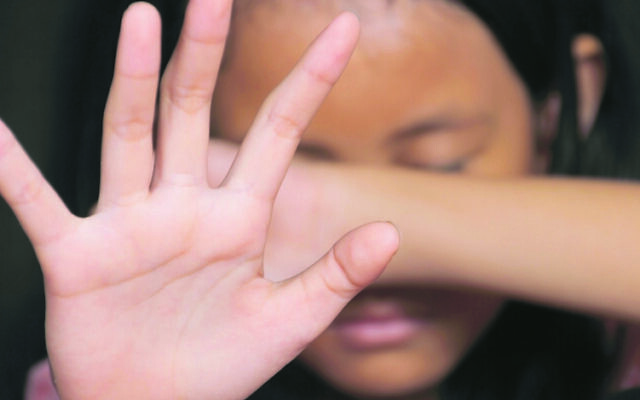We can’t afford to look the other way
'Appallingly, we are fielding an alarming spike in antisemitic incidents in two of the most fraught and fertile environments – social media and schools'.
“IT’S gunna be annudah Shoah.”
“Holohoax … six million lies.”
“i would luv to see them Jews … publicly hung.”
And in response to a report that almost half of the Jewish sites in Syria had been destroyed or damaged, this gem: “Good payback for all the deaths to these innocent people for your fantasy of the Eretz Isreal reap what you sew filth, from the river to the sea Palestine will be free.”
These disturbing contributions are a random selection of the more palatable – it’s all relative – antisemitic messages posted on the NSW Jewish Board of Deputies’ Facebook site in recent days. And don’t think the author sought to conceal his name. Far from it: he was content to identify himself as he peddled his shameless vitriol.
Not that it would have excused the offensiveness, but the posts had nothing to do with either the pandemic or the Black Lives Matter movement – both of which have attracted bizarre antisemitic elements, blaming Jews for spreading the virus and accusing Israel – with zero basis in reality – of teaching American police officers to kill black citizens.
These were “merely” hackneyed tropes and hateful rhetoric from an unknown identity happily tossing out such pejorative terms as “kike” and “yid’ while threatening another Holocaust.
The Board of Deputies lodged a complaint with the police, who visited our offices to formulate a report. Then, having traced the perpetrator’s physical address, detectives went to his home to warn him that they would be monitoring his activities, their response based on classifying his comments as “harassment” under federal telecommunications legislation.
Days later, the Board of Deputies was contacted by a teacher at a public school, informing us that a year 10 student had been persistently asking teachers if they were Jewish; if they were, he warned, he would kill them as he was a Nazi. The school suspended him for six days.
That episode was followed by the following heartfelt cry emailed by a 15-year-old Jewish student at a private school – a school in which a spate of antisemitic incidents has been perpetrated in recent months, a school whose toxic environment has effectively forced this student to change schools. This in Australia 2020:
“Hi Vic,” wrote the student, “Unfortunately since the beginning of the year … things have only worsened at [name of school deleted]. I am currently in the process of leaving the school, this being one of the reasons. Since March, I’ve been threatened by a girl in my year for being Jewish, my brother has been witness to graphic antisemitism, and seeing swastikas/Nazi salutes is an almost daily occurrence. There was one incident my brother (year seven) experienced where a boy was drawing Josef Mengele and discussed ‘dissecting Jews’. One of my history teachers (different from last time) also compared Palestinian terrorism to Jewish resistance during the Holocaust. I try as hard as possible to not make myself a target. I don’t ‘flaunt’ my Jewishness. I avoid wearing my Star of David. In fact, I hardly discuss it unless it’s my close friends but somehow it persists.”
At the time of The Australian Jewish News going to press, the Board of Deputies is in discussion with the school as to constructive ways forward.
Appallingly, we are fielding an alarming spike in antisemitic incidents, these examples giving a sense of what is out there in two of the most fraught and fertile environments – social media and schools, both arenas giving perpetrators automatic access to significant numbers of vulnerable recipients.
Coinciding with the above was the highly-publicised cartoon in the Australian Financial Review which invoked – consciously or subconsciously – ugly clichés to convey a Jewish character, in this case Australia’s Treasurer, Josh Frydenberg.
In most cases which are reported to us, we seek a combination of constructive, rehabilitative and, where appropriate, punitive responses.
In most incidents involving schools, the relevant authorities are amenable to exploring a range of remedial options to effect a productive outcome. Where mainstream media are concerned, the response is, similarly, mostly productive. Where the offence occurs on social media, however, it’s a far more resistant battleground, with greater latitude frequently allowing hurtful and bigoted messaging to be disseminated.
If the incident crosses the line to incitement to violence on the basis of race, religion, gender or sexual identity, we stand ready to invoke Section 93Z of the NSW Crimes Act – a law which was enacted in June 2018 as the result of the three-year Keep NSW Safe campaign which the Board of Deputies spearheaded.
Fortunately, that legislation has not needed to be invoked, yet. But it is essential to keep in mind that there are remedies and options available when any of the above – and the space in between – occur, whether online or in the real world. Everything begins with words, and we cannot afford to look the other way.
Vic Alhadeff is CEO of the NSW Jewish Board of Deputies.


comments